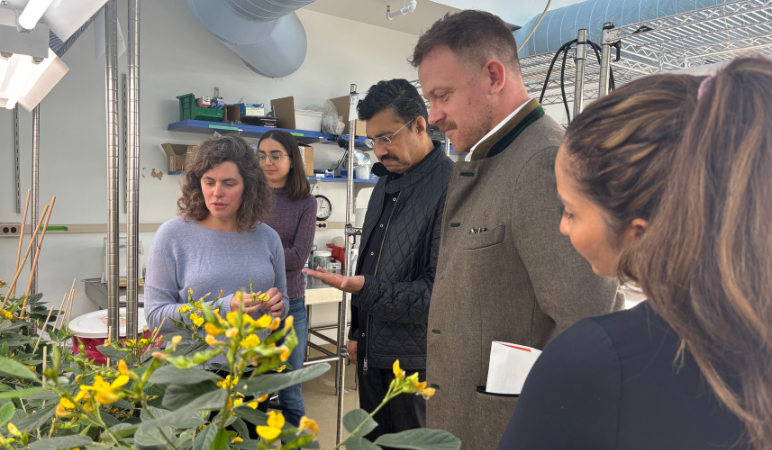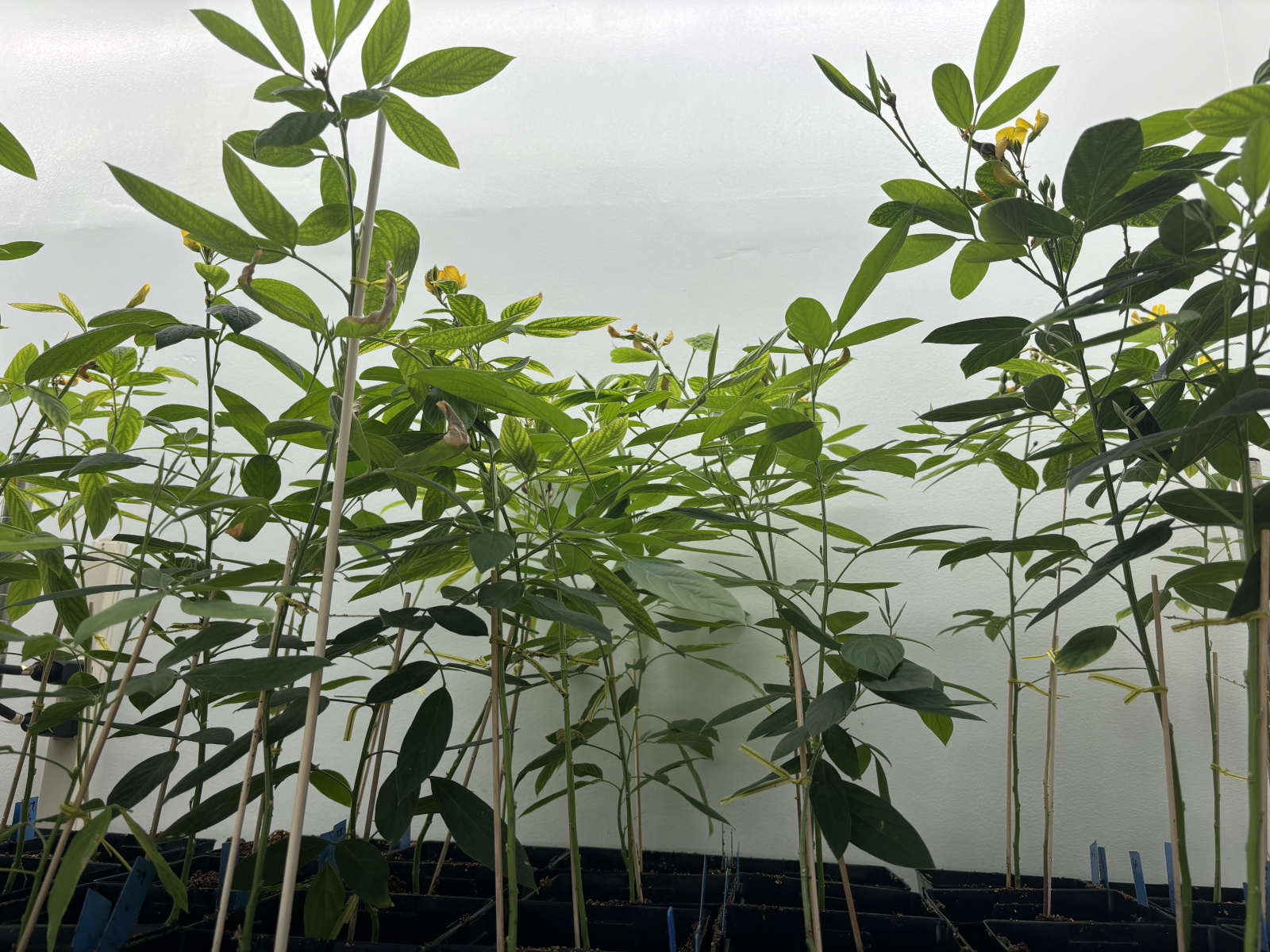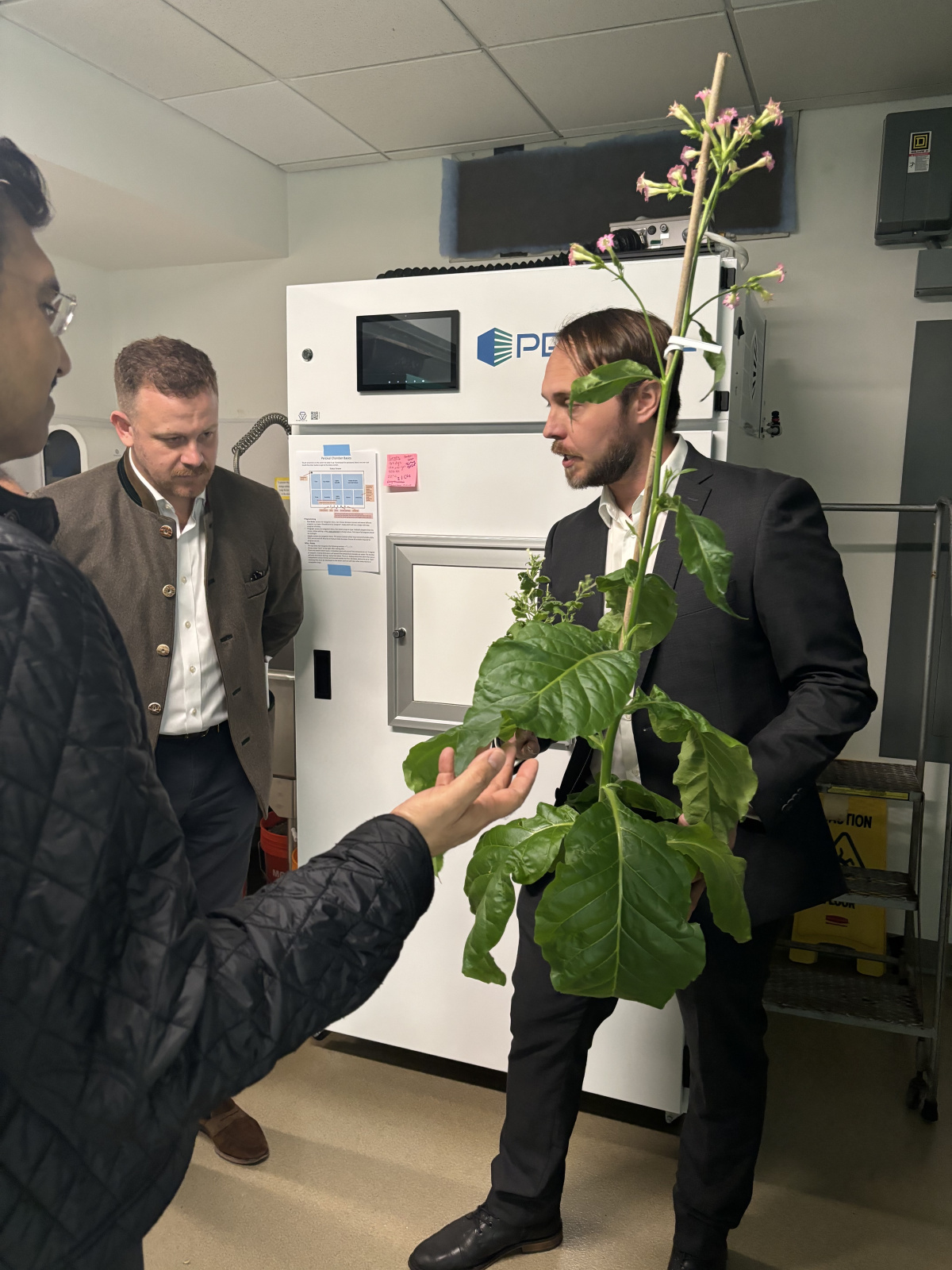News Colleagues from Community Jameel tour an MIT lab and learn about J-WAFS projects
Community Jameel members glean insights from J-WAFS projects exploring innovative approaches to crop resilience.
Avery Plachcinski Abdul Latif Jameel Water and Food Systems Lab October 8, 2024

On September 26th, 2024, members of Community Jameel, including director George Richards, visited MIT campus and toured the lab of J-WAFS PI and Professor Mary Gehring of the Department of Biology and the Whitehead Institute.
Postdoctoral associate Sonia Boor, PhD, spoke to the group about Gehring’s J-WAFS Seed Grant project, titled “A new approach to enhance genetic diversity to improve crop breeding.” The project aims to develop a universal method for increasing genetic diversity in plant populations. This work will enable plants to be more resilient to harsh environmental conditions, including pathogens, elevated temperatures, sporadic rainfall and rising soil salinity, all of which are exacerbated by environmental degradation and climate change.

Pigeon pea (Cajanus cajan), a key crop in many regions already facing food insecurity and predicted to be negatively impacted by climate change, is high in protein and drought resistant. Gehring’s lab is using pigeon pea as a test case. to improve the crop's resistance to various climate change stresses by stimulating increases in its genetic diversity. The crop is treated with chemotherapy drug etoposide, which causes breaks in DNA strands and leads to visible phenotypic changes. The library of treated pigeon pea plants are then grown in high-salinity conditions to assess their resilience. The project aims to create a stress resistant pigeon pea and apply the insights and techniques gained from these experiments to other crop species. By building resilience in nutritionally and culturally significant crops, the applications of this research can enhance food security in regions most threatened by climate change.

Robert Wilson, PhD, a research scientist in MIT’s Department of Chemistry, also took part by presenting his work on the 2023 J-WAFS Grand Challenge Grant project, titled “Enhanced photosynthesis in crops (EPiC).” Gehring is also a part of this project, which is being led by Professor Matt Shoulders of the Department of Chemistry. The team aims to build a more efficient RuBisCO enzyme, which is responsible for fixing CO2 in plants during photosynthesis.
RuBisCO is a very slow-acting enzyme, and rising temperatures associated with climate change will further decrease its function. To address this challenge, the researchers are using molecular biology and machine learning to identify, predict, install, and screen improvements to RuBisCO’s kinetic activity. Currently, they are testing the effects of introducing a miniature version of RuBisCO into tobacco plants to determine whether it can accelerate the photosynthesis reaction time. Enhancing RuBisCO’s function could significantly boost yields of major crops and strengthen agriculture's resilience to future climate challenges.